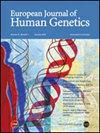Artificial intelligence in clinical genetics
IF 3.7
2区 生物学
Q2 BIOCHEMISTRY & MOLECULAR BIOLOGY
引用次数: 0
Abstract
Artificial intelligence (AI) has been growing more powerful and accessible, and will increasingly impact many areas, including virtually all aspects of medicine and biomedical research. This review focuses on previous, current, and especially emerging applications of AI in clinical genetics. Topics covered include a brief explanation of different general categories of AI, including machine learning, deep learning, and generative AI. After introductory explanations and examples, the review discusses AI in clinical genetics in three main categories: clinical diagnostics; management and therapeutics; clinical support. The review concludes with short, medium, and long-term predictions about the ways that AI may affect the field of clinical genetics. Overall, while the precise speed at which AI will continue to change clinical genetics is unclear, as are the overall ramifications for patients, families, clinicians, researchers, and others, it is likely that AI will result in dramatic evolution in clinical genetics. It will be important for all those involved in clinical genetics to prepare accordingly in order to minimize the risks and maximize benefits related to the use of AI in the field.

临床遗传学中的人工智能。
人工智能(AI)的功能越来越强大,越来越容易获得,并将对许多领域产生越来越大的影响,其中包括医学和生物医学研究的几乎所有方面。本综述重点介绍人工智能在临床遗传学中的以往、当前,尤其是新兴应用。涉及的主题包括简要解释人工智能的不同一般类别,包括机器学习、深度学习和生成式人工智能。在介绍性说明和实例之后,综述分三大类讨论了人工智能在临床遗传学中的应用:临床诊断;管理和治疗;临床支持。综述最后对人工智能可能影响临床遗传学领域的方式进行了短期、中期和长期预测。总之,虽然人工智能改变临床遗传学的确切速度尚不清楚,对患者、家庭、临床医生、研究人员和其他人的总体影响也不清楚,但人工智能很可能会导致临床遗传学发生巨大变化。所有从事临床遗传学工作的人员都必须做好相应的准备,以便最大限度地降低与人工智能在该领域的应用相关的风险,并获得最大的收益。
本文章由计算机程序翻译,如有差异,请以英文原文为准。
求助全文
约1分钟内获得全文
求助全文
来源期刊

European Journal of Human Genetics
生物-生化与分子生物学
CiteScore
9.90
自引率
5.80%
发文量
216
审稿时长
2 months
期刊介绍:
The European Journal of Human Genetics is the official journal of the European Society of Human Genetics, publishing high-quality, original research papers, short reports and reviews in the rapidly expanding field of human genetics and genomics. It covers molecular, clinical and cytogenetics, interfacing between advanced biomedical research and the clinician, and bridging the great diversity of facilities, resources and viewpoints in the genetics community.
Key areas include:
-Monogenic and multifactorial disorders
-Development and malformation
-Hereditary cancer
-Medical Genomics
-Gene mapping and functional studies
-Genotype-phenotype correlations
-Genetic variation and genome diversity
-Statistical and computational genetics
-Bioinformatics
-Advances in diagnostics
-Therapy and prevention
-Animal models
-Genetic services
-Community genetics
 求助内容:
求助内容: 应助结果提醒方式:
应助结果提醒方式:


